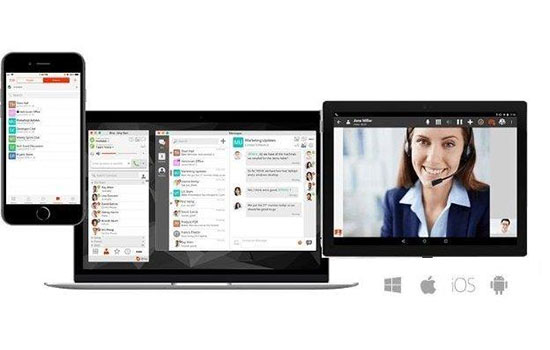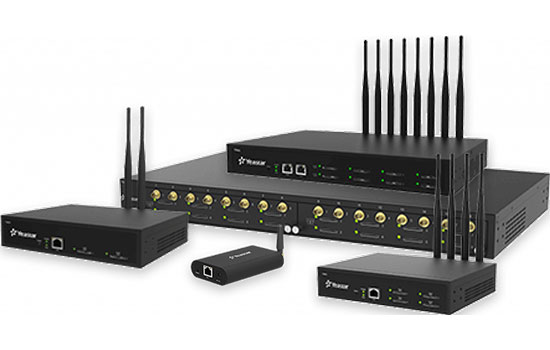One of the major developments in communications riding on the back of improvements in networking and the spread of global networks has been communications using the Voice over IP (“VoIP”) protocol. Simply put, VoIP is a way of using existing digital data networks to carry voice traffic.
It can be implemented by adding hardware and software to an existing network, or by outsourcing VoIP to an external VoIP Service Provider.
VoIP Benefits

In either case, VoIP brings cost and mobility benefits to organisations, by:
- Allowing them to bypass the Public Switched Telephone Network (“PSTN”). The PSTN is a public network where users connect via physical landlines. Calls on the PSTN are charged by duration and distance. The ability to bypass the PSTN and make VoIP calls at no charge is of special benefit for long-distance and international calls; and
- Providing improved mobility. Mobile apps for smart devices such as tablets and smartphones allow users to make and receive calls from anywhere they have network connectivity. They can use public apps such as WhatsApp or connect to the corporate network to make and receive VoIP calls.
VoIP Tools
As with other innovations, developers have brought out add-on apps and useful tools to further improve the VoIP experience. Here are the top five categories:
Softphones

A softphone is a software application that allows users to make and receive VoIP calls over the internet using a computer, tablet, or mobile device. Softphones are essential for businesses using VoIP as they provide a cost-effective way to communicate with clients and customers worldwide from anywhere, provided of course that they have an Internet connection.
The increasing availability of WiFi services in public spaces such as malls has made this one of the most sought-after services.
To ensure compatibility, the appropriate softphone app is usually provided by the supplier of the VoIP hardware installed by the business or VoIP service provider.
VoIP Phones

Desk-bound staff are more likely to use desktop phones for business purposes than smart devices. That is where handsets that look like traditional PSTN handsets come in.
VoIP phones are desk-based handsets that are designed to work with VoIP services. These phones provide high-quality voice calls and can be used with hosted and corporate VoIP systems. They can be push-button operated, or the trend is towards having a touchscreen-based interface similar to that of a smart device.
They are usually coupled with the ability to use advanced software-based calling features such as automatic call forwarding and diversion, hunting groups, and linkages to voicemail services.
Again, for compatibility, the physical device tends to be supplied by the manufacturer of the VoIP system hardware and software.
VoIP Gateways

Not everyone has a VoIP system and businesses often need to connect to traditional PSTN-connected phones. Being able to connect to the PSTN environment can be a vital feature in call and support centres.
A VoIP gateway is a device that connects traditional phone lines to a VoIP system. This device allows businesses to make and receive calls from traditional phone lines while still enjoying the benefits of VoIP technology.
Be aware though, not all devices can be connected in this way. Some legacy devices won’t operate in a digital environment.
VoIP Monitoring Tools

As with other network functions, it is essential to monitor the operation of the VoIP service. Communication inside the business and with external callers is vital to user satisfaction. Keeping a VoIP network in peak condition is vital as businesses become more and more reliant on external communications.
It is therefore essential to install and operate VoIP monitoring tools that monitor the performance of a VoIP system in real time. These tools can detect issues such as poor call quality, network congestion, and dropped calls, allowing businesses to quickly identify and resolve any problems.
Most network operating systems have network management tools, and some VoIP systems provide dedicated monitoring and management tools.
VoIP Billing Software

Because calls are essentially free, it is easy to forget that there are costs associated with the VoIP infrastructure. For example, there are hardware and software capital and recurrent costs and staff dedicated to the VoIP system need to be paid.
VoIP service providers need to know the costs of providing a VoIP service to their clients so they can invoice them, and businesses operating an internal VoIP system often want to manage and recover operational costs by recharging users and departments.
For VoIP service providers, VoIP billing software is a tool that helps to manage their billing and invoicing processes. This software can automate the billing process, generate reports, and provide real-time insights into revenue streams, making it an essential tool for any VoIP business.
For businesses, it, as already indicated, provide a method for cost recovery and control of the VoIP system.
In conclusion, there are many VoIP tools available that will help them keep their VoIP systems in peak operating condition.



Leave a Reply